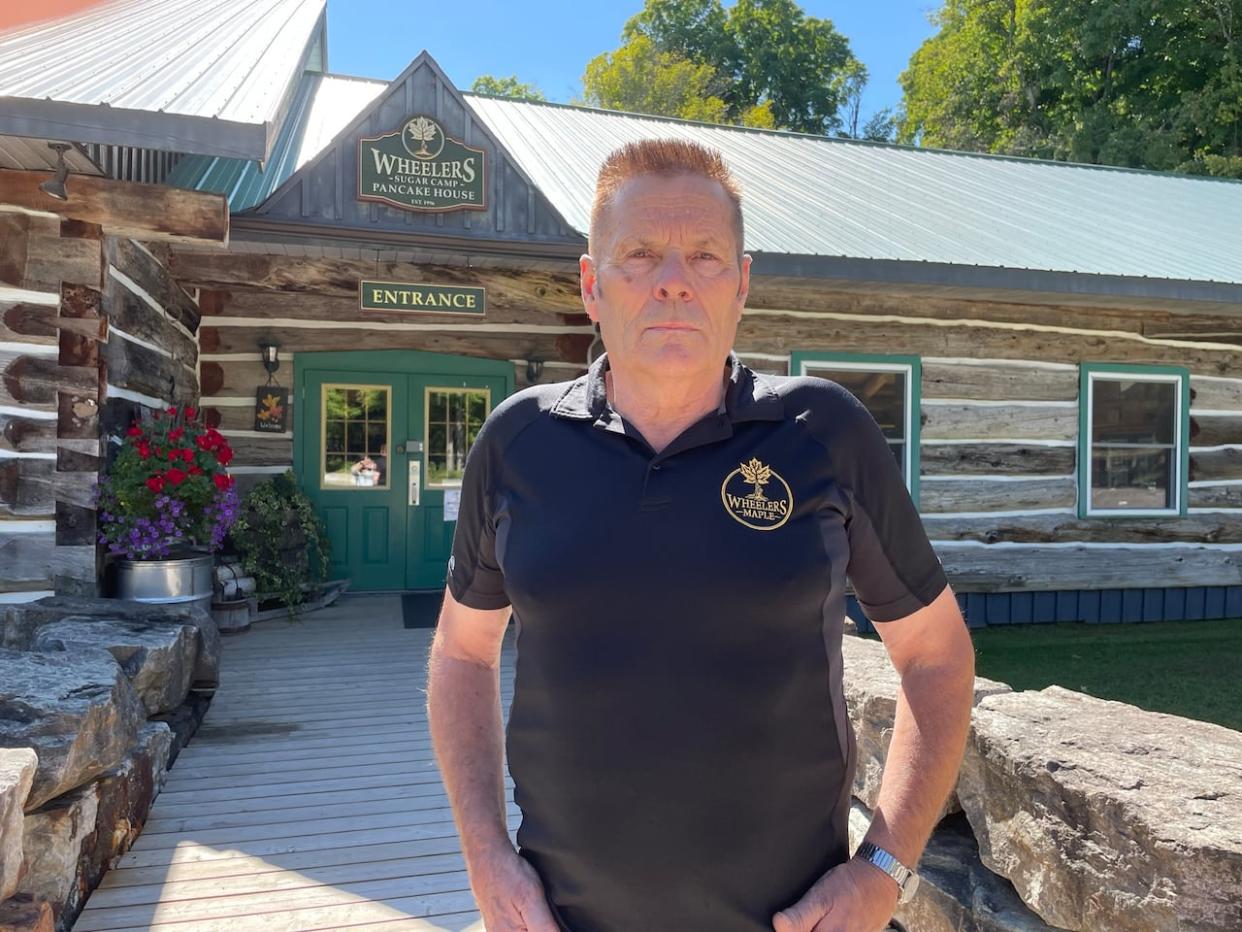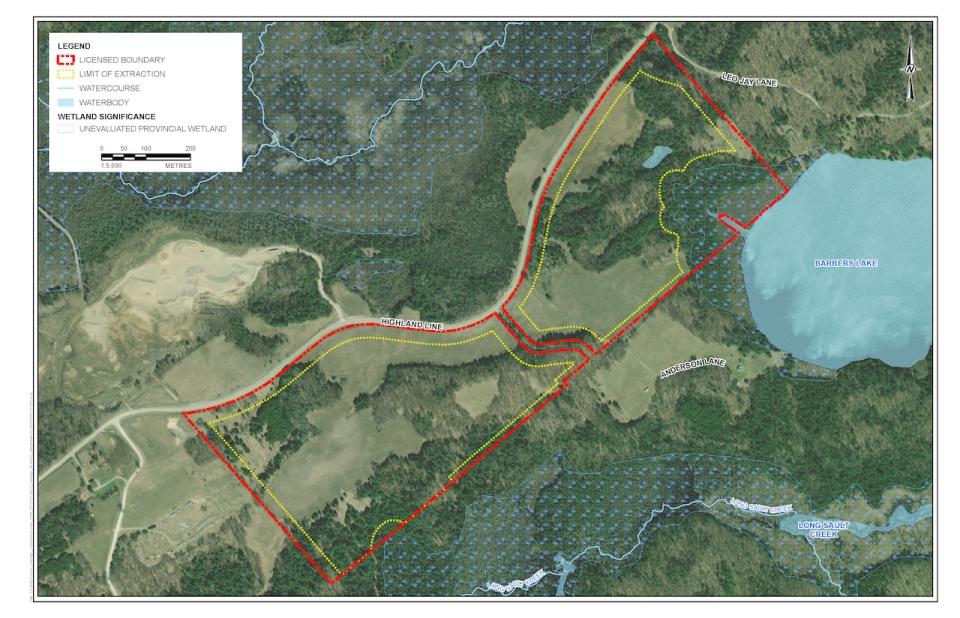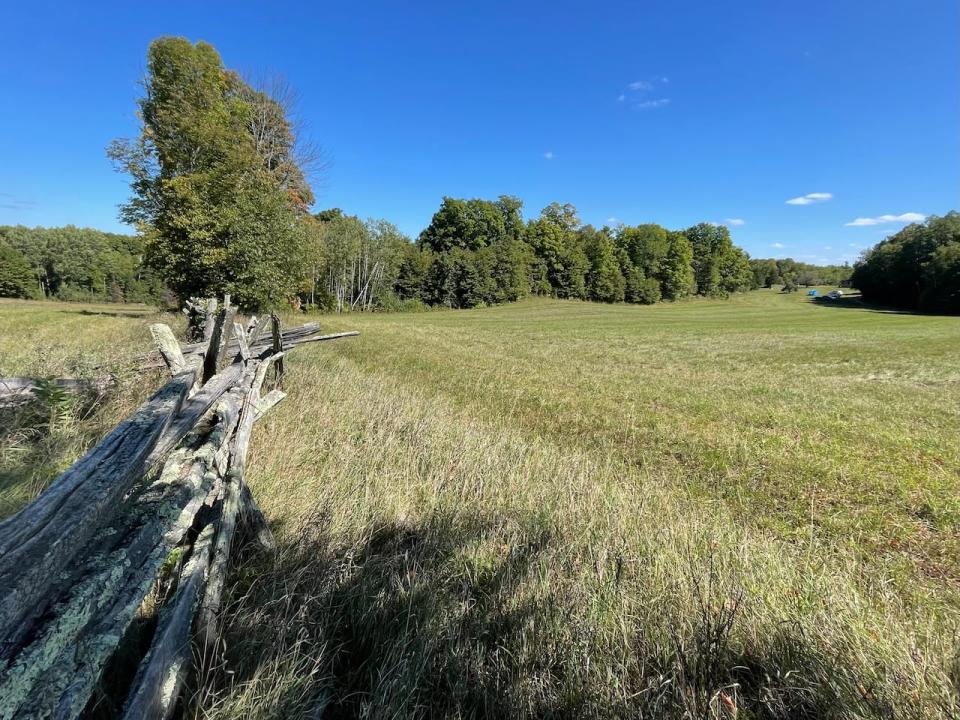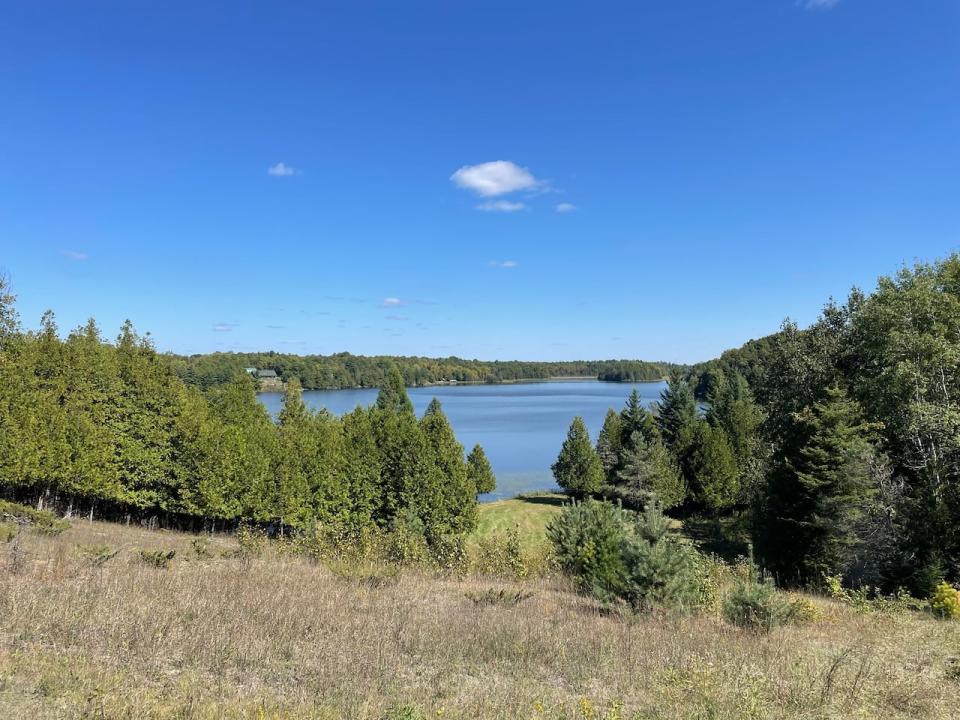Maple farmer worries proposed gravel pit will decimate family business


Vernon Wheeler has owned and run Wheelers Maple Products with his family since the late 1970s. A proposed gravel pit would sit next to his sugar bush. (Nicole Williams/CBC)
The owner of a decades-old, family-operated maple farm says he's worried a proposed nearby gravel pit will destroy his business and any opportunity he might have to pass it down to future generations.
Thomas Cavanagh Construction Limited has applied for a provincial licence to turn one of its properties — adjacent to Barbers Lake and beside Wheelers Maple Products, about 100 kilometres southwest of downtown Ottawa — into a 50.6-hectare gravel and sand extraction pit.
"We have no idea what [the pit is] going to do for the long-term health of this bush," said owner Vernon Wheeler.
He's not alone.
Hundreds of people living in Lanark Highlands, Ont., are fighting the proposal by a company with multiple past convictions for illegally polluting waterways.
While it wouldn't be the only aggregate pit in the area, concerned residents said it would be the largest and potentially most damaging.
They're worried about the environmental impacts of an operation of that size, with threatened species and a sugar bush at stake, they said.
Cavanagh said the company's proposed mitigation measures and its technical, noise, environmental and archeological assessments, among other reports, indicate there would be no significant impact to nearby wildlife or groundwater.

A map of the proposed pit by Thomas Cavanagh Construction Limited, which shows the nearby Long Sault Creek and Barbers Lake. (Thomas Cavanagh Construction)
The company's history has done little to quell people's fears. It has faced at least three previous convictions and fines between 2003 and 2017 for damaging and illegally polluting the county's Jock River.
Cavanagh declined CBC's request for an interview, but sent a statement saying the company was "still early in the application review process."
"We appreciate the level of community interest in this application and will be reaching out to the community in the future with additional information including any proposed changes to the application," it read.
The application
If approved, the pit would be located along the Highland Line road in an area designated by the province as a sand and gravel resource area of "primary significance." Several other gravel extraction companies already operate in the area.
The company said the site contains at least two million tonnes of "high-quality sand and gravel resources."

The site of the proposed pit by Cavanagh. The company says there are about two million tonnes of high quality sand and gravel there. (Nicole Williams/CBC)
Residents say what sets Cavanagh's potential operation apart from the other pits is its request for licences to drill below the water table, extract up to one million tonnes worth of material every year, and operate 24 hours a day — though the company said it would limit most work to between 7 p.m. and 7 a.m.
And while Cavanagh wants the entire 50.6 hectares of its property licensed, it said only 35.1 hectares would be used in its operations, which would be set back 30 metres from the wetlands of Barbers Lake.
Concern for nearby lake, sugar bush
"The magnitude of this is just out of this world," Wheeler said of the proposal.
He's owned and operated the maple farm on Highland Line with his family since 1978. Wheeler, who intends on keeping the business in the family, said he instantly became worried when he heard about the proposed pit and Cavanagh's intention to dig below the water table.
"The maple tree is very sensitive to change, to different water levels … The trees have adjusted to the way it is right now, the way it's been for the last hundreds and hundreds of years," he said of possible changes to groundwater.
More than 200 people have joined Wheeler in submitting letters to the company following a public meeting on the project over the winter, expressing a multitude of concerns including for the environment and increased traffic and noise.

Tim Schruder, who lives right next to the site of the proposed gravel pit, stands in front of Barbers Lake. (Nicole Williams/CBC)
"When you start to to read into what they're actually looking to do, it becomes quite mind-boggling and shocking," said Tim Schruder, who also lives on Highland Line and is a member of Friends of Lanark Highlands, a group dedicated to fighting the proposal.
Schruder, whose property is located in front of Barbers Lake and next to the site, said there's wildlife that the pit would put at risk, including trout and Blanding's turtles, a threatened species in the province.
'No impact to Barbers Lake,' company says
Brad Richardson, Cavanagh's general manager of aggregates, said in a statement that "there are stringent rules and regulations in place to protect Barbers Lake and species at risk."
He said Ontario's natural resources and environment ministries, Fisheries and Oceans Canada and others are reviewing environmental studies presented by the company "to ensure they comply with federal and provincial legislation."
Groundwater monitoring wells and surface water stations have also been installed and would be monitored during pit operation "to ensure there are no impacts to Barbers Lake," Richardson added.
He also said extraction work would happen no closer than 30 metres back from an unopened road between the two properties.
Previous convictions
Cavanagh construction was first fined $60,000 in 2003 for dredging a stream of the Jock River to drain water from one of its quarries. A news release from the Ministry of Natural Resources at the time indicated "no sediment controls were used during any of this activity."

Residents say Barbers Lake is home to wildlife, including a threatened species of turtle. They fear any possible pollution from the pit would put wildlife at risk. (Nicole Williams/CBC)
In 2005, company owners pleaded guilty and paid $15,000 in fines after once again digging on a section of the river without a permit.
Then, in 2013, the company was fined $275,000 for discharging construction sediment into a drain that flows into the Jock River.
Sediment and erosion control measures were ineffective, weren't being properly maintained and were inconsistent with the plan the province had approved, the province said at the time.
The company did not comment on resident concerns about its past convictions.
Application likely to be approved, says township
"Bottom line, to make people more or less concerned, is to start following the letter of their licence," said Lanark Highlands Township Reeve Peter McLaren.
McLaren, who used to own a gravel pit himself, said it's unlikely Cavanagh's operation will dig as much or as fast as what they'll be licensed for, but he understands resident opposition.
As part of Cavanagh's application, the company has asked the township to approve rezoning its property for aggregate extraction. The reeve said that as long as the company's proposal follows the official plan, the township will have no choice but to approve it.
And while the application process is still in its early stages, McLaren said he suspects the province will also eventually approve the project.
"The province is very pro-business," he said, pointing to Premier Doug Ford's decision to open up the Greenbelt before recently reversing it.
In a statement, the Ministry of Environment, Conservation and Parks said it is working closely with the Ministry of Natural Resources and Forestry to review the project.
"There are no compliance issues related to the proposed gravel pit," the statement read, but added that "past compliance history may be considered during the ministry's review."
Wheeler, along with members of Friends of Lanark Highlands, said that if the pit is approved, they'll appeal the decision with the Ontario Land Tribunal.
"We made it grow," said Wheeler of the sugar bush. "I want it here for the future. Not just now, but for the future."


